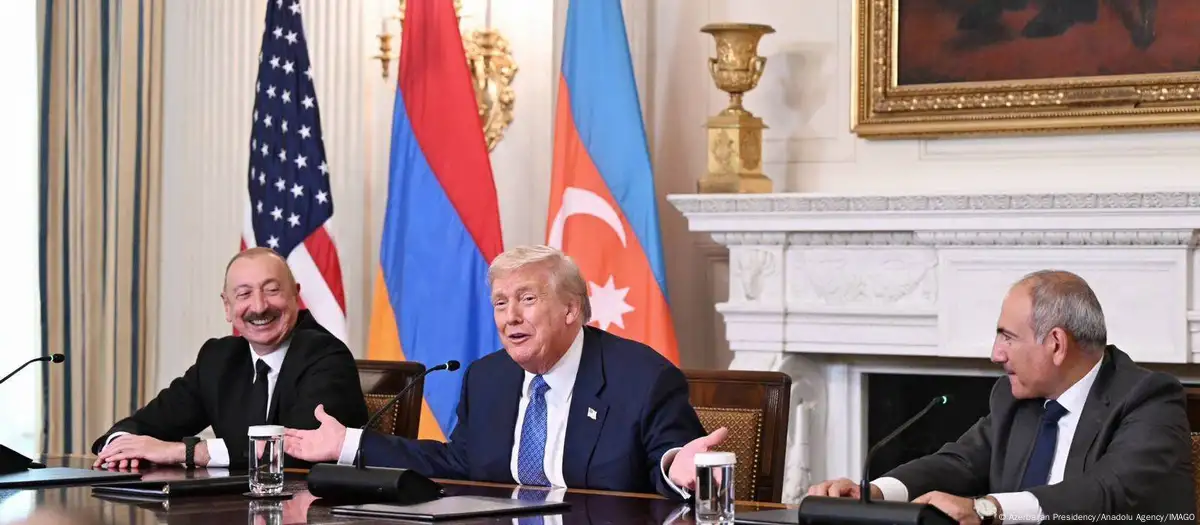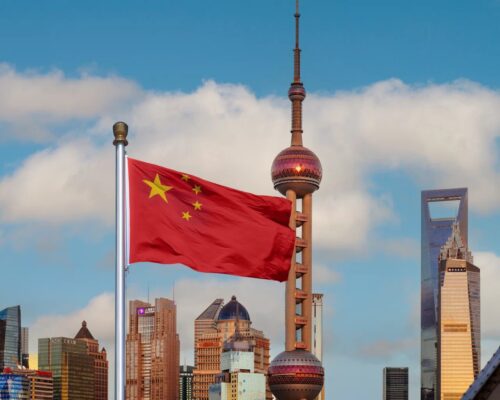
DW: How will Iran respond to the ‘Trump route’ in the South Caucasus?
A US-brokered peace declaration between Armenia and Azerbaijan has been met with mixed reactions in Iran. The country has welcomed peace between the two ex-Soviet nations but also expressed opposition to growing US influence in its backyard, Deutsche Welle writes.
As noted, Azerbaijan has established itself as a major oil and gas producer, and the new route would offer a more direct trade connection to Turkey and onward to Europe. For Iran, also a major energy power, this would be a severe blow. Also, Iran maintains rather close ties to Armenia and is sensitive to moves that might limit its diminishing influence in the region.
On Aug. 9, Ali Akbar Velayati, advisor to Supreme Leader Ali Khamenei, said Iran, “will not allow the creation of this corridor,” as the US presence in the South Caucasus poses a threat to Iranian interests. However, Iranian President Masoud Pezeshkian quickly contradicted this assessment a day later.
The peace plan “also takes Iran’s views into account,” he said during a phone call on Monday with Armenia’s Prime Minister Nikol Pashinyan.
The corridor is much more than a transit project, said Afshar Soleimani, a former Iranian ambassador in Azerbaijan.
“The main problem is the strategic competition between Russia and the West,” he told DW.
Solemani added that the West, and the US especially, are trying to diminish Russian influence in the South Caucasus and take advantage of a power vacuum brought on by Russia being bogged down in Ukraine.
Shireen Hunter, an Iran expert at Georgetown University in the US, told Iranian news website Tabnak that she doesn’t think Russia can “win back” its former dominance in the region, even if it is set to remain an important actor.
“It is conceivable that Russia and the US are now seeking a comprehensive agreement on Ukraine and the Caucasus,” she said.
According to Hunter, the construction of pipelines and trade routes that bypass Iran has been part of US strategy since the 1990s.
“Trump has merely accelerated this process and now achieved the signing of the agreement,” said Shireen, who was an Iranian diplomat.
The new “Trump route” would serve as a significant reinforcement of Iran’s geopolitical isolation, she said.
The publication notes that while Iran still maintains good relations with Christian-influenced Armenia, its relations with Muslim-majority Azerbaijan are tense.
“Tehran attempted to curb Israel’s influence in Azerbaijan by establishing closer ties with Armenia,” Reza Talebi, an Iran expert at Germany’s University of Leipzig, told DW. “The result, however, is that Azerbaijan is now even more closely linked to Israel.”
There is also concern in Iran about separatist groups wanting to secede from Iran and form a “South Azerbaijan.”
In Baku, there are also nationalist movements that speak of a “greater Azerbaijan” that would include Iranian Azerbaijanis. According to German-based expert Talebi, Iranian President Pezeshikan is trying to adjust Iran’s regional policy, including towards Azerbaijan, the Iraqi region of Kurdistan, Pakistan and Turkey. The government’s goal is to avoid a new conflict in the context of Iran’s growing isolation.
With both global and regional alliances shifting, Iran must fundamentally rethink its entire foreign policy and adapt its goals to the changed realities. This would include accepting US regional presence, and resolving issues with Washington, said expert Shirin Hunter.


